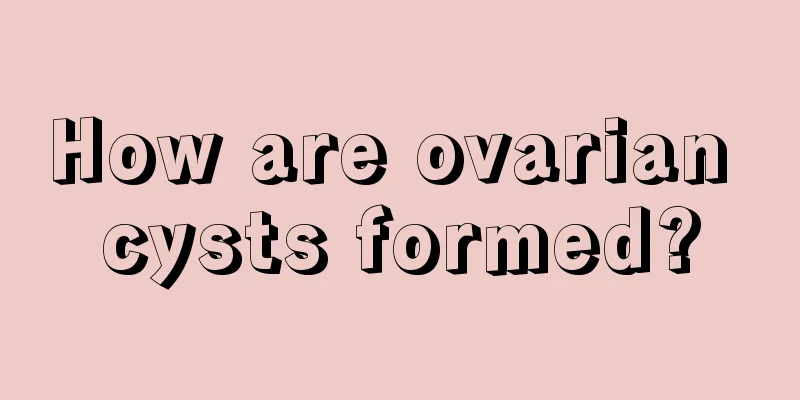Is women’s menstrual blood poisonous?

|
Women have their menstruation every month, and one of the main symptoms of menstruation is vaginal bleeding. This kind of menstrual blood is not ordinary blood, but it is mixed with many other things, so people not only think that menstrual blood is particularly dirty, but also contains certain toxicity. Sometimes, when there is a lot of bleeding, people think it is a sign of the body's detoxification, which is really puzzling. So, is women's menstrual blood poisonous? Advertisements all say “Excrete toxins and feel relaxed!” Many people believe that women’s monthly menstruation is a form of detoxification. Even many pseudo-popular science articles will have titles like “How to better detoxify during menstruation” to attract people. Is menstruation a detoxification? Why do people call menstruation "bad luck" or "a bad thing"? In the past, when science was not well developed, "blood" was considered an unlucky thing, so people also considered menstruation to be an unlucky thing. However, modern medicine believes that menstruation refers to the periodic shedding and bleeding of the endometrium that accompanies periodic ovulation of the ovaries. The age of menarche is mostly between 13 and 15 years old, and menstrual blood is generally dark red. The main component of menstrual blood is blood. In addition to blood, there are also endometrial fragments, cervical mucus and exfoliated vaginal epithelial cells. The main characteristic of menstrual blood is that it does not coagulate, but under normal circumstances there will be some small blood clots. Seeing this, some friends may have questions. Since there are no toxins in menstrual blood, what is the meaning and purpose of menstruation? In other words, the endometrium is growing well, so why does it fall off? We all know that the main function of the uterus is to nurture the fetus. It is a hotbed for the growth and development of the fetus. Whether it is for maintaining normal menstruation or pregnancy and childbirth, the uterus and ovaries are a good pair that complement each other. What is the function of the ovaries? Some female friends will be deceived by beauty salons to do ovarian beauty and maintenance, although these beauty and maintenance have no definite therapeutic effects. However, it can be seen that female friends know that the function of the ovaries is to bring youth and beauty to women, and at the same time the important task of the ovaries is ovulation. To sum up, the ovaries are sexual organs that produce and release eggs and secrete sex hormones. Every month, a woman of childbearing age will have an ovarian follicle that matures and releases an oocyte. During a woman's lifetime, approximately 400 to 500 follicles develop, mature and ovulate. The thirty years or so when ovulation is possible are the golden years for us female friends. Ovulation is the result of the dynamic changes and mutual restraint of female hormones such as estrogen and progesterone. Along with the cyclical changes of the ovaries, the endometrium also undergoes corresponding cyclical changes. Taking a 28-day menstrual cycle as an example, on the 5th to 14th day of the menstrual cycle, the estrogen secreted by the ovaries makes the endometrium thicker and thicker like a wall. At this time, the endometrium is called the proliferative endometrium. After ovulation, the ovaries secrete progesterone and estrogen, and the proliferative endometrium undergoes secretory changes. The secretory phase is between days 15 and 28 of the menstrual cycle. If the discharged egg is not fertilized (late luteal stage, corpus luteum atrophy), the secretion of estrogen and progesterone decreases, the endometrium loses the support of estrogen and progesterone, necrosis and exfoliation occur, manifested as menstruation, and the endometrium at this time is called menstrual endometrium. Some experts compare menstruation to the silent cry of the endometrium due to lack of fertilization. After hearing this, do you know what menstruation is? Menstruation is not detoxification. Menstrual blood mainly contains blood, endometrial fragments, cervical mucus and exfoliated vaginal epithelial cells. Since there are no toxins in menstruation, you don’t need to spend money or rack your brains to detoxify in one way or another! |
<<: Will my uterus enlarge when my period comes soon?
>>: How to treat urethritis during menstruation
Recommend
How to take a bath in the healthiest way for women in summer
How long before bedtime is the healthiest to take...
Are these 9.9 yuan free shipping headphones really usable? Will they damage your hearing?
On many shopping apps, when you search for "...
Recovery from episiotomy during childbirth
Many female friends who have given birth will hav...
Fast heartbeat and headache after medical abortion
Cesarean section and medical abortion are two com...
What is the full name of the small mk bag? What grade does the small mk bag belong to?
Recently, I saw many people online promoting the ...
How much is a box of dydrogesterone tablets
The main ingredient of dydrogesterone tablets is ...
What does irregular menstruation mean?
I believe that women are not unfamiliar with irre...
How to exercise to tighten the vagina
When the vagina becomes loose, the quality of sex...
How to lose belly fat after giving birth to second child
We all know that it is very easy to lose weight a...
How to store green bananas so they will ripen? How to tell if the banana flesh is rotten?
Bananas are high-calorie fruits. In some tropical ...
How to solve vulvar itching?
I believe that many female friends will encounter...
Omdia: iPhone 15 Pro Max shipments reached 21.8 million units in the first half of 2024, ranking first
Recently, according to a report released by marke...
Is it better for a five-month-old baby to sleep on his side or on his back? What should you pay attention to when your five-month-old baby sleeps?
In fact, parents don't need to pay too much a...









